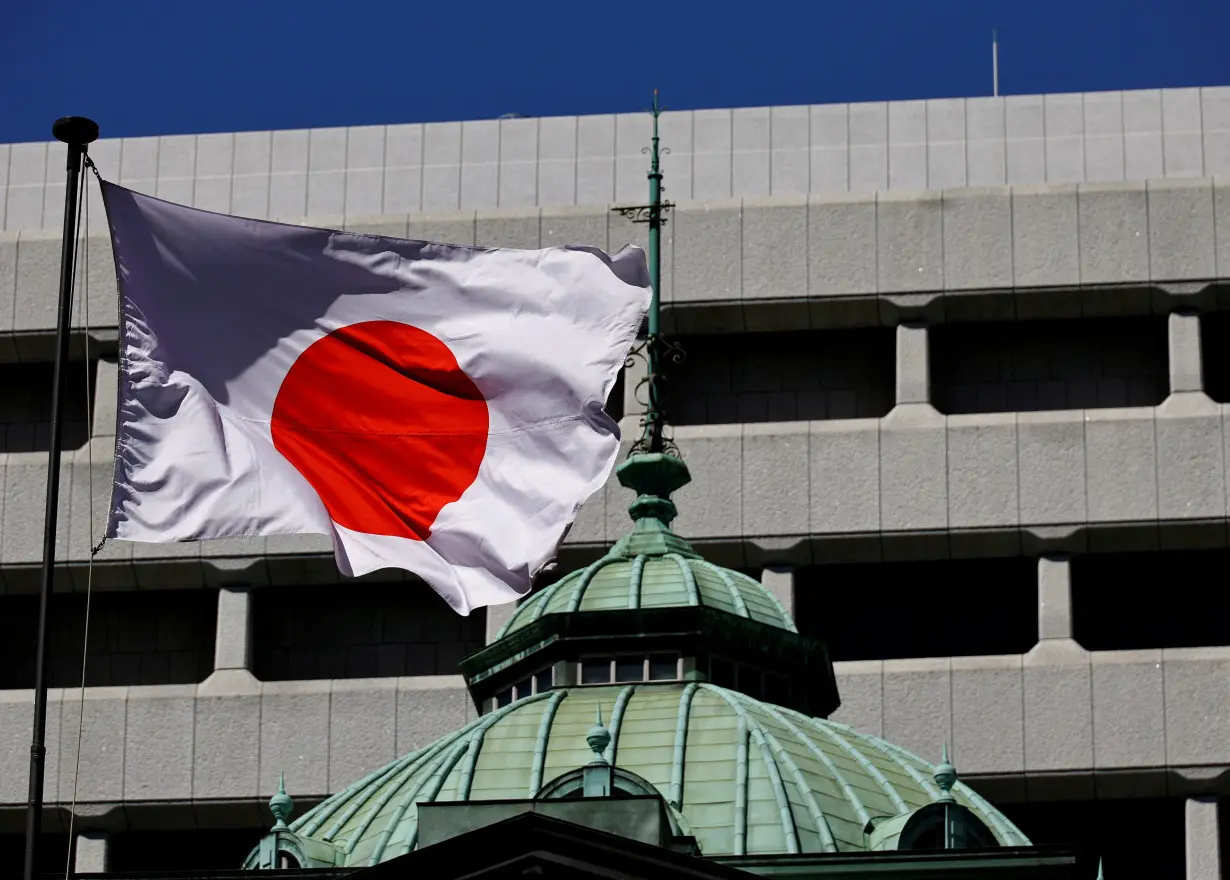By Summer Zhen
HONG KONG (Reuters) - Japanese banks have attracted larger foreign investment flows than other sectors, as investors see them as top beneficiaries of potential monetary tightening.
Analysts said Japan's emergence from decades of deflation and higher rates will mean better earnings for banks, supporting their stock prices.
WHY IT'S IMPORTANT
The Bank of Japan ends a two-day policy meeting on Wednesday and could raise interest rates and taper its purchases of bonds, following its ending of negative interest rates in March.
As it prepares to unwind a decade of monetary stimulus, investors who have witnessed the Nikkei stock index rally 20% in the past year are trying to pick winners.
BY THE NUMBERS
Banks and automobiles are two sectors with net foreign investment inflows so far this year.
Banks lured an estimated 472 billion yen ($3.1 billion) of net stock purchases in the year to July 25, more than double the flows into the automobiles and components sector, according to J.P. Morgan quantitative strategy team.
CONTEXT
Japan's three biggest banks forecast record profits in the coming year, thanks to better interest margins and growing funding demand, after being squeezed by negative rates for years.
Shares of Sumitomo Mitsui Financial Group, Mitsubishi UFJ Financial Group and Mizuho Financial Group have surged 53%, 39% and 36% year-to-date, respectively.
Overseas investors have also been buying more domestic-oriented sectors such as services and pharmaceuticals, on expectations of further gains in the yen.
KEY QUOTES
Yue Bamba, Blackrock's head of active investments for Japan: "We are going from very difficult times to much more conducive environment for all the banks. We think their outperformance can continue... even incremental increases in interest rates result in direct benefits from an ROE perspective."
Zuhair Khan, senior portfolio manager at UBP: "Mega-banks will be beneficiaries of rising rates as they have more lending opportunities than regional banks, however I believe this benefit is already more than priced into the stocks."
($1 = 153.7200 yen)
(Reporting by Summer Zhen; Editing by Vidya Ranganathan and Stephen Coates)

 Chinese ship linked to Baltic Sea cable breach resumes voyage
Chinese ship linked to Baltic Sea cable breach resumes voyage
 China's Nio introduces Firefly brand to take on BMW's Mini
China's Nio introduces Firefly brand to take on BMW's Mini
 Top-ranking NYPD officer abruptly resigns amid sexual misconduct allegations
Top-ranking NYPD officer abruptly resigns amid sexual misconduct allegations
 Pope has a cold and will skip outdoor Sunday prayer ahead of a busy week
Pope has a cold and will skip outdoor Sunday prayer ahead of a busy week
 Here's a look at the $100 billion in disaster relief in the government spending bill
Here's a look at the $100 billion in disaster relief in the government spending bill
 How to see the Ursids, the final meteor shower that peaks in 2024
How to see the Ursids, the final meteor shower that peaks in 2024
 Senate passes RFK Stadium land bill, giving the Washington Commanders a major off-the-field win
Senate passes RFK Stadium land bill, giving the Washington Commanders a major off-the-field win
 Tiger Woods says his son Charlie beat him in a round of golf for the first time, but only on a nine hole course
Tiger Woods says his son Charlie beat him in a round of golf for the first time, but only on a nine hole course
 Adam Sandler is still having ‘funukah’ with his ‘Chanukah Song’ at 30, and so is my family
Adam Sandler is still having ‘funukah’ with his ‘Chanukah Song’ at 30, and so is my family








